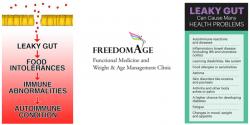- All Categories Display all categories
- Advertisement Ad Agencies, Marketing
- Travel Travel agents, Taxi Services, Flight, Bus Ticketing, Passport & Visa
- Hotels & Restaurants Hotels, Restaurants , Bars , Resorts, Dhaba
- Industry Company, Factory, Work shops, MNC
- Shopping Boutiques, Shop
- Real Estate PG ,Property - Shops, Malls , Flats, House, Rental
- Entertainment Cinema & Theaters, Amusement Parks, Clubs
- Education Schools , Colleges, Institutes, Coaching Centres , Universities, Books
- Medical Hospitals, Doctors, Chemists, Blood Bank, Medical Products
- Lifestyle Lifestyle, fashion, cosmetics, boutique, tailors, shoes
- Services Services, Home Services, Special Services
- Finance Financier, Banks, ATM, Loans, Insurance, Forex , Money Transfer
- Events Banquet Hall , Tent House , Auditorium, Caterers, DJ, Pandit
- Hardware Hardware Tools, Hardware Dealers,
- Listed Products
Freedom Age : LEAKY GUT
Product Code : Freedom Age : LEAKY
Brand : Freedom Age
Store Number :
9899147100
(Click to call)
Category: Medical and Healthcare
Price : 0.00
Leaky gut syndrome and dysbiosis can be responsible for low –grade inflammation through –out the body and can add to oxidative stress and the development of cardio –metabolic disease as well as cause most auto-immune and many other chronic diseases.
“If you have an autoimmune disease that’s attacking and displaying in your joints, they’re not targeting just the joints, they’re targeting the entire immune system. This can lead to getting infections, even leading to lymphomas and cancers,”
I prescribe all my patients a series of lifestyle changes to prevent and possibly reverse autoimmune diseases, starting with a clean diet.
“Nearly 80 percent of our immune system is in our gut
“And if we have an autoimmune disease, it’s a problem with our immune system.”
A leaky gut means large openings form along the intestinal walls, allowing proteins and viruses to escape into the bloodstream. The immune system recognizes them as foreign, and begins to attack them, as well as things that resemble them.
“It’s called ‘Molecular Mimicry, “Some of these proteins look very similar to our body tissues, like our thyroid, and begins to mistakenly attack our thyroid when it was meant to attack say a virus or a protein.”
“A leaky gut comes from things like stress, certain medications and eating processed foods, sugar, dairy and gluten, which is in wheat.
Sub sequent to the loss of intestinal mucosal integrity. Degradation of this barrier is often due to toxins which damage the ‘tight junctions’ between intestinal epithelial cells leading to a ‘leaky gut. Researchers have found that certain proteins in grains (gluten in wheat, rye, oats, barley, millet, rice and sorghum); zein in corn, casein in dairy, and other proteins in some legumes damage the lining out gut, which enables the entire contents of your intestine to make its way into your body. One of these proteins –wheat germ agglutinin (WGA)-also affects the enzyme ‘transglutaminase’-this enzyme modifies every protein in our body and can produce a myriad of diseases. Other common toxins include fructose, alcohol, on –steroid anti –inflammatory drugs (NASIDS), stress, viruses, bacteria, parasites, antibiotics, cytotoxic drugs and yeast. Often yeast over growth produces chronic fatigue and sugar cravings. (Gluten can also cause inflammation of the brain and skin without abdominal symptoms).
Overgrowth of any one of the more than 400 microbial species in the human gut can produce adverse effects. Excessive growth by undesirable microbes alters the metabolic and immunologic status of the host. These microbes can turn our genes on or off. When this state leads to dysfunction or disease it is termed “dysbiosis”.
This phenomenon has only recently been recognized by physicians.
SYMPTOMS OF A LEAKY GUT
| Abdominal Distention |
| Diarrhea |
| Constipation |
| Abdominal pain |
| Food Intolerances |
| Skin rash |
| Poor Exercise Tolerance |
| Muscle pain |
| Joint pain |
| Fatigue |
| Shortness of Breath |
| Foggy Thinking |
| Fever of Unknown Origin (FUO) |
If you answered yes to three or more, you may have a leaky gut.
Virtually all of the risk factors that cause “inflammation “also produce auto-immune dysfunction of the arteries and heart disease. Evidence shows that gut bacteria can also turn on the fat switch.
Sugar intake has been related to dyspepsia, GERD, Peptic ulcers, hiatus hernia, gallstones, crohn’s disease, ulcerative colitis and diverticulitis.
Dr Kalpana Gupta Shekhawat
MBBS, DNB,DFM, MD Clinical Nutrition, CNCB, TEXAS,USA
Functional & Regenerative Medicine Specialist
BHRT Consultant (American Anti-ageing Medicine)


